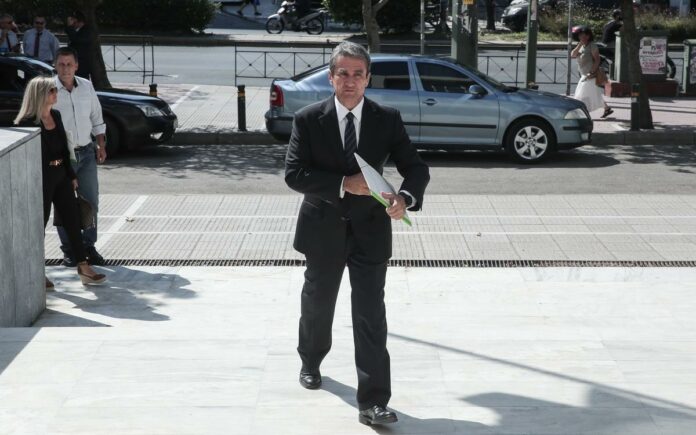A controversial anti-corruption prosecutor on Tuesday conveyed an order to the Athens prosecutor’s office to file a felony bribery charge against former health minister and current MP Andreas Loverdos, the first criminal indictment to arise after several years of an ongoing investigation into allegations of kickbacks by Novartis’ Greek subsidiary.
Loverdos has loudly denied any wrongdoing and waived his right any Parliamentary immunity.
Out of 10 past prime ministers and ministers implicated by a trio of anonymous witnesses over the past two years, the same anti-corruption prosecutor, Eleni Touloupaki, and her associates, failed to corroborate the allegations against seven, essentially shelving the probe against the latter.
Most of the 10 office-holders, including Greece’s current central banker and the country’s EU Commissioner, are bitter political rivals of leftist SYRIZA party, under whose tenure in government (2015-19) the independent judicial investigation dramatically widened and was readily cited by the Tsipras Cabinet’s ministers and a portion of the press as proof of high-place corruption by past governments.
Touloupaki’s sudden referral of an indictment came a day after the head of the Supreme Court prosecutor’s office, Vassilios Pliotas, requested the convening of the plenum of appellate justices and the assumption of the never-ending Novartis probe by more senior jurists – considered a distinct reprimand of Touloupaki’s handling of the probe.
An order/recommendation by a high-ranking prosecutor is always acted upon, which in Loverdos’ case means it will be now conveyed to an appellate level prosecutor or prosecutors that will, ostensibly, take over the case and investigation from Touloupaki.
Among others, she never once summoned Novartis Greece’s former vice-president, Constantinos Frouzis, to provide testimony in the case in the nearly three years she has headed the investigation. According to press reports and leaks, the three anonymous witnesses repeatedly claimed that Frouzis was the mastermind – and, on occasion, the actual “courier” – of payoffs to Greek prime ministers, a finance minister and health ministers in order to keep pharmaceutical prices high or to prefer Novartis’ products in state contracts.
Critics have pointed out that state expenditures for pharmaceuticals up until 2015 dramatically fell in Greece, due to memorandum obligations to reduce public spending, a trend that was also mirrored in private spending for pharmaceuticals.
Frouzis was expected to finally testify before a Parliament fact-finding committee on Tuesday afternoon, which itself was established by a vote in Parliament and after a request by the current center-right government.














